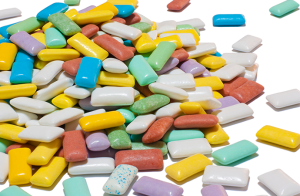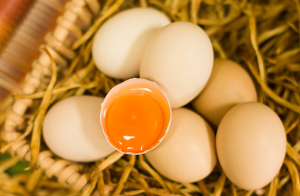Compared with other food flavors, the sour taste is more continuous and has endless aftertaste, which is a development trend of food flavors. Food sours are widely used in beverage and fermentation industries. Sours can not only enhance the flavor of beverages, but also play a role in antisepsis. They are very important raw materials in beverage production. Some sour agents also have multiple functions. For example, L-malic acid in food sour agents has a health care effect. It is one of the organic acids widely used in the world’s food industry and has a good development prospect.
L-malic acid is an important intermediate product of the tricarboxylic acid cycle in the human body, is easily absorbed by the human body, has important physiological functions, and is widely used in the fields of food, medicine and chemical industry.
L-malic acid has a mild and long-lasting sour taste, and is currently widely used in wine, beverages, jams, chewing gum and other fields. The combination of L-malic acid and citric acid has the effect of strengthening the sour taste. According to the results of the taste comparison test between malic acid and citric acid, compared with citric acid, L-malic acid has higher sourness intensity, round and full sour taste, mild and non-irritating in the mouth, and the sour taste lasts longer. The comprehensive score is significantly higher than that of lemon acid. Compared with DL-malic acid, L-malic acid has a purer sour taste, no aftertaste and astringency, and a softer sour taste.
The taste of L-malic acid is close to the sour taste of natural apples, and the formulated drink is refreshing and thirst-quenching, which is closer to natural fruit juice. In terms of physiological metabolism, it is beneficial to the absorption of amino acids and does not accumulate fat. And because the average dosage of malic acid can be 8%-12% (mass fraction) less than citric acid, it will not damage the oral cavity and teeth. Compared with citric acid, it produces lower calories and better taste. At the same time, as a food sour agent, malic acid is helpful to human health to a certain extent, can promote the secretion of saliva, and help the dissolution of some mineral substances in the human body. In terms of sour taste agents, as consumers know more and more about sour taste agents, the use of malic acid as a sour taste regulator has gradually been favored by consumers.
Today, the production method of L-malic acid has been developed from the traditional chemical synthesis method to the biological fermentation method. AHB is promoting the industrialization of bio-based malic acid to meet the green and healthy consumption needs of residents. In the field of food consumption, the majority of residents currently have high requirements for food taste, safety, health and other aspects. The bio-based malic acid produced by AHB by fermentation method is more in line with consumers’ concept of low-carbon and environmentally friendly consumption. AHB is reshaping the way of getting along with nature through synthetic biology, creating a greener and low-carbon earth.



































